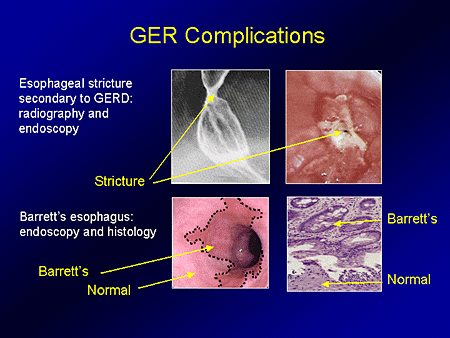In pediatric gastroesophageal reflux disease (gerd), immaturity of lower esophageal sphincter function is manifested by frequent transient lower esophageal relaxations, which result in retrograde flow of gastric contents into the esophagus signs and symptoms. Gastroesophageal reflux disease in pediatric. First, the distinction between physiologic and pathologic gastroesophageal reflux (gastroesophageal reflux disease-gerd) is not always clear second, measures of the extent of gastroesophageal reflux often poorly correlate to symptoms or other complications attributed to reflux in infants and children.
gastroesophageal reflux disease in pediatric
1 gastroenterol clin north am 1999 dec;28(4):947-69 gastroesophageal reflux disease in children orenstein sr(1), izadnia f, khan s author information: (1)division of pediatric gastroenterology, university of pittsburgh school of medicine, children's hospital of pittsburgh, pennsylvania, usa in the pediatric population, gastroesophageal reflux most often presents in infancy as effortless. Continued do babies outgrow gerd? yes. most babies outgrow reflux by age 1, with less than 5% continuing to have symptoms as toddlers.however, gerd can also occur in older children.. Introduction. gastroesophageal reflux (ger) occurs in more than two-thirds of otherwise healthy infants and is the topic of discussion with pediatricians at one-quarter of all routine 6-month infant visits. 1, 2 in addition to seeking guidance from their pediatricians, parents often request evaluation by pediatric medical subspecialists. 3 it is, therefore, not surprising that strongly.

